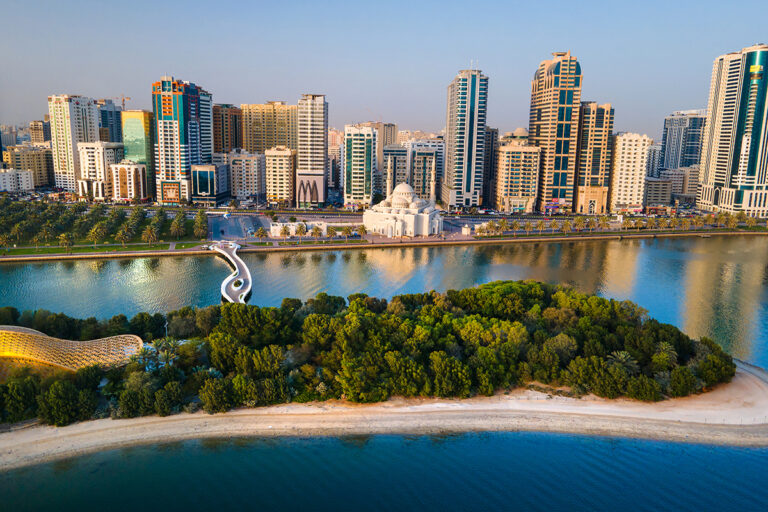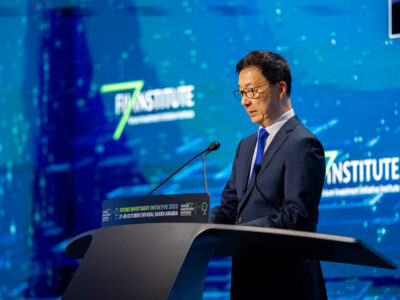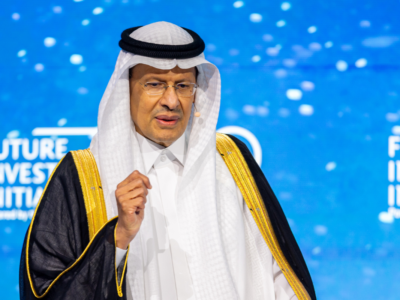Sharjah’s approach to building interconnected ecosystems across education, research and business is now being applied to how government delivers digital services.
Eng. Majid Almadhloum, Advisor to the Sharjah Digital Department, describes the emirate as “a nice place to live, study, work and start a business,” pointing to deliberate urban planning that creates comprehensive value for residents and entrepreneurs. The newly approved Digital Integration Programme aims to replicate this thinking in how citizens interact with government.
“This massive ecosystem makes it a nice place to live, study, work and start a business,” Almadhloum told Arabian Business, referencing University City, which combines educational institutions, the Sharjah Research and Technology Park, the House of Wisdom and student neighbourhoods within ten minutes of the airport.
“Digital services are being designed with the same ecosystem thinking.”
Sharjah shifts focus to integration
The programme, backed by the ruler and announced in May, represents a shift from digital transformation to integration. After 20 years of operations, the Sharjah Digital Department received a new mandate focused on eliminating friction between government entities rather than simply digitising services.
“The challenge that we saw was integration between entities,” Almadhloum explained. “We want citizens to focus on the experience and the service that they need, not which department they’re dealing with.”
The approach mirrors how Sharjah has built physical infrastructure. Agriculture investments span from soil to shelves, creating food security, health benefits, educational programmes and jobs in one integrated value chain. Similarly, digital services will guide users through complete experiences regardless of how many government entities are involved behind the scenes.
The programme is structured around five domains – digital services and channels, data and artificial intelligence, digital infrastructure, cyber resilience and trust, and digital enablement. Some 50 initiatives will roll out in phases, starting with governance frameworks before advancing to analytics and AI-driven decision support.
Almadhloum emphasised that the department consulted private sector partners and citizens before designing the strategy. “We listened before we started thinking and designing,” he said. This outside-in approach informed decisions on everything from data governance to infrastructure architecture.
The department operates its own sovereign cloud while partnering with hyperscalers like Microsoft and AWS to balance local control with global scale. On data and AI, it adopted a hybrid model that starts centralised for speed, then transitions to federated structures as entities mature.
“We might start doing centralised a little bit, and then go hybrid mode until we prepare the situation to be more federated,” Almadhloum said. “While doing that, we are training the people, investing in capacity building.”
Technology with purpose
Last year’s AI training programme, developed with partners, is graduating thousands of participants. Hackathons brought together students and entrepreneurs of different ages working on real challenges. The teams building platforms include developers, subject matter experts and data specialists passionate about their projects.
“We care about those teams. We want to see them grow, scale, and they will then pay this forward to other teams,” Almadhloum said. “That’s how this nation was built anyway.”
When asked what excites him most about the programme, Almadhloum identified creating better decision support for leadership and unifying how the government identifies problems. “We became better in identifying the real problems,” he said. “What we are sure of, platforms are designed to solve real problems that exist today, that people like me and you are facing.”
The department views its role through three interconnected pillars – collaborating with the private sector, treating citizens and government entities as partners rather than just end users and positioning itself as an enabler rather than director.
“It’s not only about showing technologies or presenting apps,” Almadhloum said. “It’s showing the purpose of these apps, how they affect you or me or whoever is interacting with them. It’s all about the people and for the people.”








